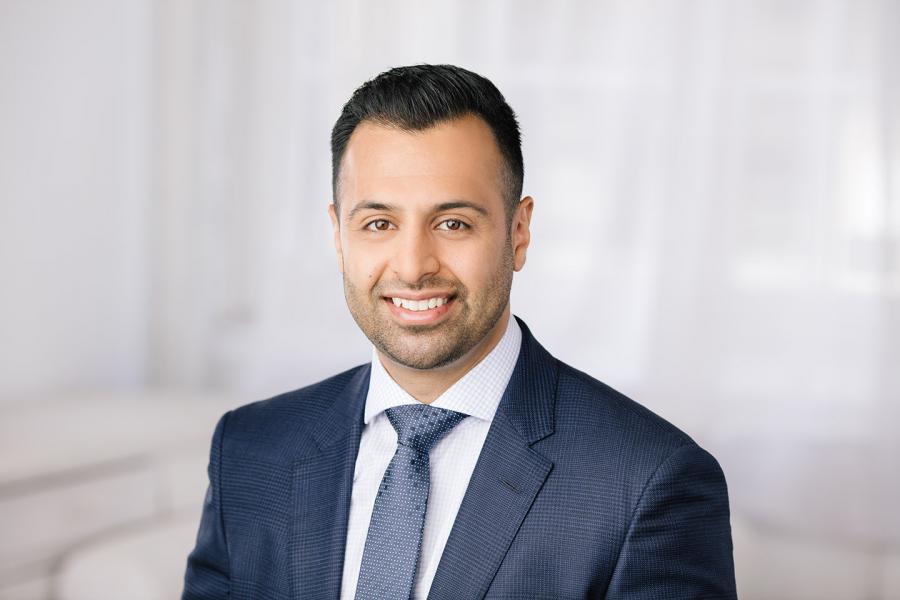 The BC ECHO for Chronic Pain is a new virtual learning community that will bring together specialists and community health care providers from around the province to learn together from complex pain cases.
The BC ECHO for Chronic Pain is a new virtual learning community that will bring together specialists and community health care providers from around the province to learn together from complex pain cases.
The BC ECHO will be facilitated by a Clinical Hub Team made up of experts from a range of backgrounds, including physiatry, family medicine, psychiatry, psychology, pharmacy, physiotherapy and occupational therapy.
The team of experts will be led by Dr. Najam Mian, a physiatrist and pain medicine specialist. Najam has a breadth of experience in pain management, from completing a 5-year residency in physiatry, to becoming the first trainee to complete the new Pain Medicine Residency at the University of Toronto. In his spare time, he enjoys watching hockey as a dedicated Edmonton Oilers fan, enduring the trials and tribulations of each new season.
When asked what led him to take an interest in this field of work, he mentioned his residency in physiatry being the starting point for his desire to learn more about managing complex pain. “Not everyone knows about physiatry but it’s kind of an unknown speciality in medicine. We treat muscles, bones, joints and nerves,” he said. “I started to learn more about x-ray guided injections and ultrasound injections, but as I was using them in practice, I began to realize that these injections don’t work as well in all patients.”
Najam says his pain medicine residency program helped him understand the importance of the biopsychosocial approach to managing pain. “I’ve learned that there’s a lot more to pain than just treating one specific target,” he said. “You have to look at the whole multidimensional aspect of pain.”
The BC ECHO for Chronic Pain provides a unique experience for experts and community health care providers to learn together via videoconference. Najam says that this virtual framework will play a key role in breaking down geographical barriers to provider learning. “The tele-education model will allow us to transmit knowledge from city centres all the way to rural parts of the province,” he said. “It will also enable family physicians and other health care providers who are currently struggling across the province learn how to manage some of these complex issues.”
Najam and the rest of the Clinical Hub Team will work together to develop curriculum and lead 2-hour monthly sessions that focus on different topics surrounding pain management. He believes the BC ECHO for Chronic Pain will emulate the successes seen for the Ontario ECHO for Chronic Pain. “ECHO Ontario Chronic Pain found greater self-efficacy among primary care providers that were attending these sessions, transmittance of knowledge to family physicians and an increased ability to manage patients with lived experience of pain,” he said.
When asked about what makes the BC ECHO for Chronic Pain a unique learning opportunity, he highlighted how collaboration plays a key role in enhancing provider education. “It’s not just the top-down approach where experts are speaking down to other health care providers. The community health care provider will present their case, and then other providers will take turns to provide their input on how they would treat that given case in their communities,” he said. “I think that’s one of the huge advantages of ECHO. The collaboration piece is really important and I’m extremely hopefully we’ll be able to transmit knowledge successfully in this way.”
He also thinks the BC ECHO for Chronic Pain will serve as a good opportunity to investigate existing barriers to patient care. “We also want to be able to understand from primary care physicians, what are the barriers for patients accessing allied health care treatment and other resources in their community, and what can be done to improve that?” he said.
Najam encourages people living with chronic pain to share this learning opportunity with their community health care providers. “Patients should look forward to physicians and other health care providers having a greater understanding of what kind of investigations and treatments can be offered for their specific pain conditions, understanding when referrals are needed and hopefully having an overall more comprehensive approach to managing chronic pain,” he said.
If you’re a practicing health care provider with an interest in pain, we encourage you to join our ECHO. Cycle 1 begins on April 30, 2019. More information can be found here.